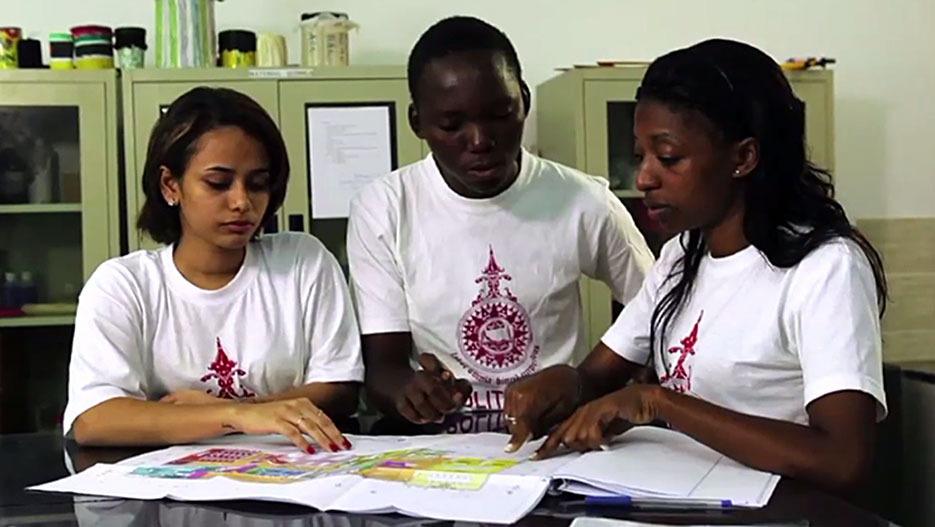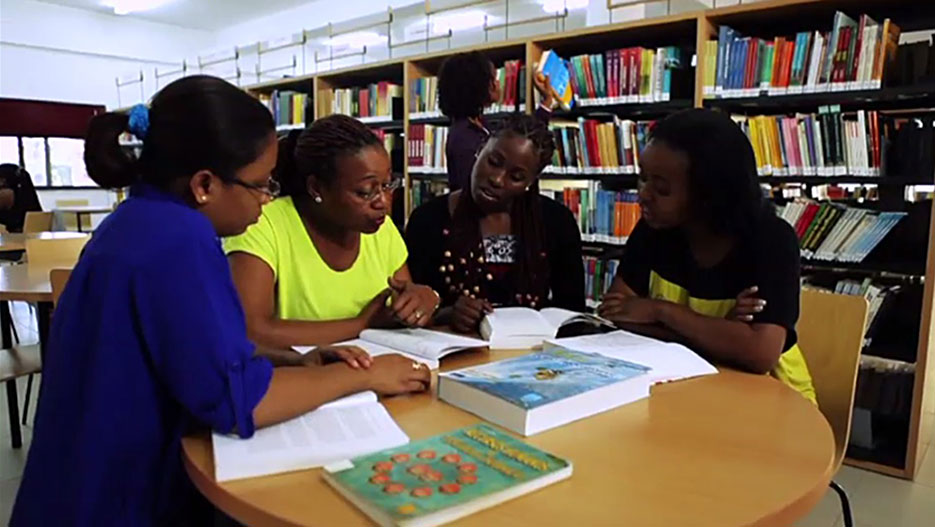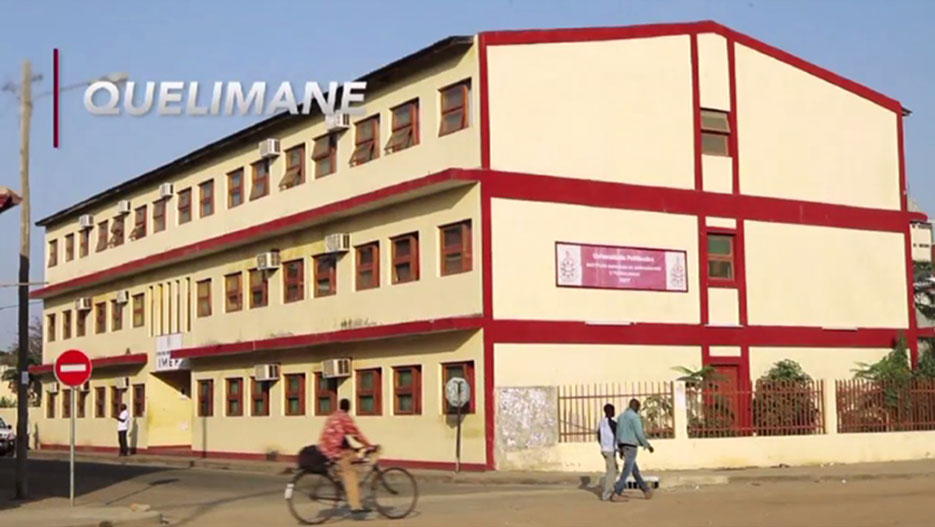Higher Education in Mozambique: Interview with Lourenço do Rosário
Lourenço do Rosário, Dean of Universidade Politécnica, talks about his latest activities and shares his vision for Politécnica and Mozambique for 2016.
Interview with Lourenço do Rosário, Dean of Universidade Politécnica
Could you tell us about your visit to Havana and what was discussed with other student bodies during this travel?
All the Mozambican Universities said yes to the invitation of the Cuban authorities, inviting us to be present in Havana to discuss education. Mozambique was represented by 40 delegates of all the Mozambican universities. It was a week of debates on several matters concerning research, comprehensiveness, teaching, community relations, etc. But what we have retained as being really fundamental was the development of pedagogical sciences in higher education. Mozambican universities, as most African universities, follow the European idea that a teacher can be a researcher and a teacher at the same time. But pedagogy is sometimes put aside. We have seen that this concern of Latin American universities is extremely important. Every day more the sciences and know-how transfer is not enough to improve teaching and develop HR in the country. Therefore, Universidade Politécnica believes it is important to consider the creation of conditions to establish the first post-graduation courses on pedagogy and education for teachers.
When will this post-graduation courses be up and running?
First we need to consolidate this idea with the Deans of the University of Zambeze and Eduardo Mondlane and then establish the network of actions which can be held. Teachers need to be trained in pedagogy.
What are the news regarding exchanges between Portuguese-speaking universities after the last annual meeting which was held in Portugal?
We believed we would have less students than usual, but that didn’t happen. Actually, the number of students increased, which is great. It means people believe in our university.
The meeting in Lisbon follows the dynamics of the CPLP, the Community of Portuguese-Speaking Countries, which is currently being presided by East Timor, and which will be presided by Brazil in July, before the Olympics. In this first meeting, academic titration and also the circulation of people and materials in the communities were discussed. But we have to understand that whatever idea is implemented, each university works at a different pace. Portuguese and Brazilian universities are faster than African ones when it comes to implementation of networks and platforms. Within Africa, universities have different rhythms of implementation as well, see Angola, Guinea, Sao Tome and Principe or Cap-Vert. Resuming, what we discussed in Lisbon was the reinforcement that bilateral cooperation is not beneficial when is done between solid universities and those which are still struggling to implement themselves. We came to the conclusion that if we all worked in a platform, this transfer of knowledge and circulation of teachers and students would bring a greater balance to all. The June meeting in Timor will allow us to discuss cooperation and financing between universities, as well as the importance of the ocean for CPLP. All the Portuguese-speaking countries have interest in the ocean, Timor, Cape Vert, Portugal, Brazil, etc. Not only for its history, geostrategy, politics or international commerce, but also due to piracy, traffic, etc. We are now reflecting on how we can work on this issue.

With which countries are you planning on making these teacher and student exchanges?
The government of Lula, in his first term of office I believe, determined that in all elementary schools in Brazil classes on African history and culture should be taught, but this caught many schools unaware, because there were no qualified HRs for this purpose. The government of Lula also created Unilab, a university that receives a percentage of African students every year. As a matter of fact, many universities in Brazil are already developing post-graduation and masters related to African studies. We established a cooperation protocol with Unilab and we are currently preparing a representative group that will be travelling to Brazil to teach African culture in Unilab. Besides Unilab, we have covenants with other Brazilian and Portuguese universities: with the University of Sao Paulo and with PUC [Pontifícia Universidade Católica] in Minas Gerais and Rio de Janeiro, where we send teachers to teach post-graduation courses and in return they send us students who come to complete their African culture researches. These people participate in seminaries with us and are obliged to minister some classes to our students, therefore having contact with our reality in terms of education. For example, representatives from Universidade Franca will be participating in a jury to promote a teacher of ours. We also have scholarships, allowing our students to do part of their studies here and the other part abroad, in Brazil, in Rio de Janeiro or Belo Horizonte. With Portugal, we work with ISCTE (Instituto Universitário de Lisboa), Universidade de Coimbra and Universidade de Lisboa. Basically they send us some teachers who will ministrate courses here in Mozambique.
Are you also working with universities that are not representing the Portuguese language?
We have an exchange covenant, which is almost ending, with the University of Cranfield, in England, for the course of demining management, and we promote many demining actions with universities in Angola and Mozambique. We also had a covenant with a Swedish university called Groningen, but it was only for transfer of knowledge. We have also worked with the university of Lecce in Italy, where I, myself travelled to teach Italian students about African literature. But these are sporadic actions. I also recall that Usaid (United States Agency for International Development) financed an American university which helped us develop our radio project, as well as actions on health, nutrition, HIV, eating habits, etc. The project finished but we kept the radio up and running. It was a very important project.

Could you tell us about your project of banking course?
We are using the know-how of João Figueiredo, founder of Banco Único, to promote this course and we also signed a protocol with Fundação Dom Cabral in Belo Horizonte, in order for this banking course for corporate executives to be created in Mozambique. It is a course to stimulate the Mozambican knowledge of the Brazilian banking system. Part of the course is performed in here by Brazilian teachers and the other part in Brazil, where the students will be able to visit the banks and the banking system. This is a big project for us, alongside our masters and doctorates.
What are the benefits of this banking course for those corporate executives?
There are 3 main benefits: improvement of banking administration, banking product and service execution, and staff training. We truly believe this will help Mozambican banks to develop.
Due to your expansion as a university, you will soon inaugurate a new building, correct?
The university was created in 95 and in 98, due to political and social pressures, we were invited to create our headquarters in Quelimane in the Zambezia province. We were the first university to establish in that province, which is one of the biggest in the country in terms of demographics. We are now celebrating 18 years in Zambezia and therefore we are going to inaugurate a new building which cost us arounf 4 million US dollars. In terms of education buildings in Zambezia, ours is the first private building. This is an honor and we are very proud.

What is your vision for Universidade Politécnica in 2016?
Mozambique is facing some economic problems and when we prepared this school year we were a bit pessimist when comparing to the year of 2015 or 2014. We believed we would have less students than usual, but that didn’t happen. Actually, the number of students increased, which is great. It means people believe in our university. Moreover, our e-learning platform also increased the number of students from 350 to 700 students. We created this platform since Africa is quite big and we can’t be everywhere in person.
What are the communities that tend to choose e-learning more often?
There are many people looking for this type of learning platforms, mainly people in the interior of the country, which don’t have a way to attend universities in person, or even public network officials or PME’s staff.
What are your perspectives on the economic development of the country?
We are currently facing political problems, but those will be solved and only then will we be able to reach an economic turnaround. Moreover, as Mozambique is not an oil dependent country, it can survive the low-cost of oil, which Angola, for example, cannot. The coal and gas crisis also shows this country that people need to diversify and I believe that when the political and military crises ends in Mozambique, we will be able to survive and develop in financial terms.